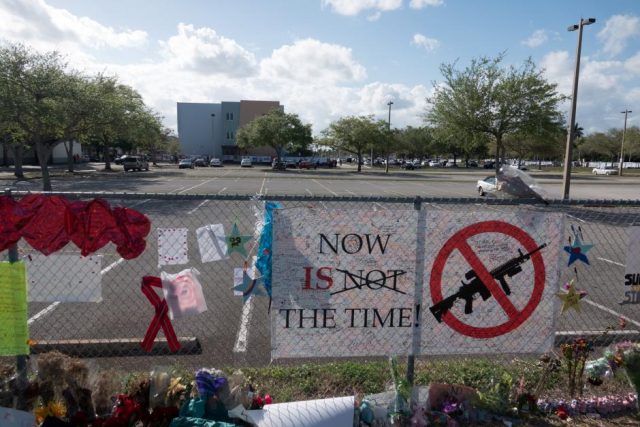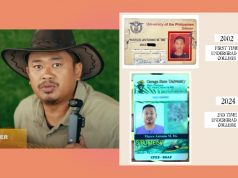
PARKLAND, Fla. — Florida’s Republican-controlled Senate voted on Monday to generally exclude classroom teachers from a plan to allow school staff to carry firearms as part of a package of measures in response to a school shooting that took 17 lives last month.
The amendment was designed in part to increase support from many parents, law enforcement officials and legislators in both parties who object to arming teachers, as well as from Governor Rick Scott, a Republican also on record as opposed to the idea.
The exclusion was adopted by voice vote as part of a package of legislation the Senate passed a short time later, 20-18, to raise the minimum legal age for buying all guns in Florida to 21 and impose a three-day waiting period for any gun purchase.
The minimum age for handguns nationally is already 21. But a person can be as young as 18 to buy a rifle in Florida, with no waiting period.
Authorities say the man charged with killing 14 students and three adult educators at Marjory Stoneman Douglas High School last month in Parkland, Florida, was 18 when he legally purchased the semiautomatic AR-15-style assault rifle used in the massacre.
The Senate-passed bill represents a break with the National Rifle Association gun rights lobby, which has resisted proposals to raise age limits or impose new waiting limits.
The bill now moves to Florida’s Republican-controlled House of Representatives.
A House committee last week approved similar legislation, including a provision allowing local sheriffs to create voluntary programs for deputizing school personnel as armed “marshals,” subject to school district approval and special training. U.S. President Donald Trump has voiced support for such a plan, also advocated by the NRA.
As amended in the Senate bill, classroom teachers would be excluded from carrying guns to work unless they are part of the Junior Reserve Officers’ Training Corps program, or are members of the U.S. military or former police officers. Other school personnel would be eligible to participate.
A spokeswoman for the governor said Scott, who was endorsed by the NRA and received its highest rating for supporting gun rights, would review the bill in its final form before deciding whether to support or oppose it.
“The governor is against arming teachers,” the spokeswoman, Lauren Schenone, told Reuters, adding that Scott “still has concerns” with the three-day waiting period, which he has opposed in the past.
The Florida Senate over the weekend rejected an amendment to ban assault weapons.
Addressing mental health
As passed, the Senate bill echoes a number of other proposals endorsed by Scott after the Feb. 14 massacre, including new powers for police to temporarily seize guns from people involuntarily committed or deemed a danger to themselves or others by a court.
It also allows police to petition a court for a “risk-protection” order barring an individual from possessing firearms if that person is judged as dangerous because of a mental illness or violent behavior.
Authorities have said the accused Parkland gunman, Nikolas Cruz, had a history of mental issues, numerous encounters with local police and was expelled from the high school last year for unspecified disciplinary problems. Federal and local law enforcement have also acknowledged receiving multiple warnings about his potential for violence before the shooting.
The Senate bill also provides nearly $400 million to pay for various school safety and mental health initiatives.
A group of parents from Stoneman Douglas High held a news conference outside the school on Monday urging legislators to enact meaningful legislation in time for adjournment on Friday.
Max Schachter, whose son was among those killed in Parkland, said parents hosted a meeting of 25 law enforcement officials and other experts from across the country to discuss school safety, and all opposed arming teachers.
“Not a single expert said that was a good idea,” Schachter said.









